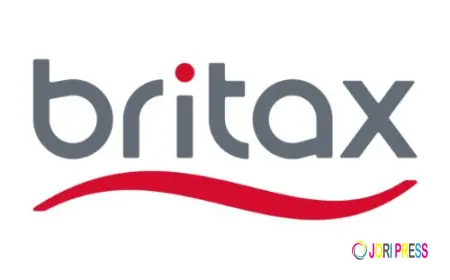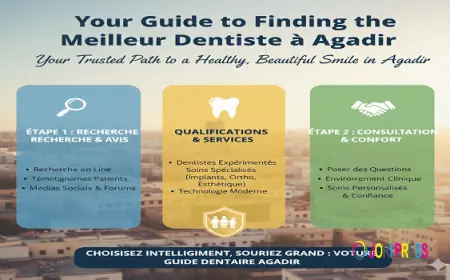How a Professional Spray Foam Contractor in Lowell, MA Boosts Property Value
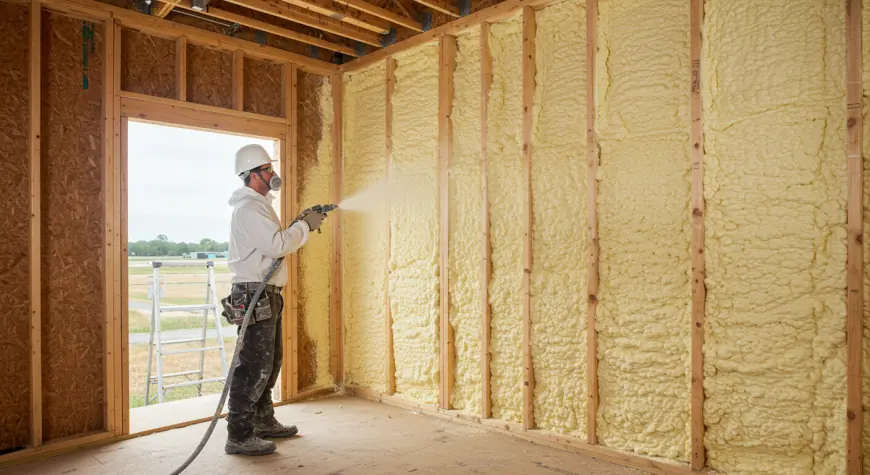
Spray foam insulation is no longer a niche solution—it’s a key upgrade that impacts long-term energy performance, structural integrity, and overall property value. For both homeowners and commercial property managers working with a professional spray foam insulation contractor in Lowell, MA, can provide measurable returns. This article explains how the right insulation choices can increase market worth, lower operating costs, and future-proof properties.
Why Insulation Quality Affects Property Value
Insulation isn’t just about comfort. It affects everything from HVAC efficiency to sound control and long-term maintenance needs. Properties with quality spray foam tend to retain value longer and command higher selling prices. Buyers are increasingly seeking buildings with proven energy efficiency and modern building envelopes.
Homebuyers Look for Proven Energy Savings
Properties insulated by experienced spray foam teams often come with lower utility costs and reduced environmental impact. Those features align with today’s buyer expectations, especially in older New England housing stock where energy upgrades carry high weight.
Commercial Buyers Value Lower Overhead
For commercial property owners, improved insulation reduces heating and cooling expenses across large floor plans. A professional spray foam contractor can reduce thermal bridging, seal air leaks, and help meet Massachusetts energy codes—directly influencing cap rates and NOI during a sale or refinance.
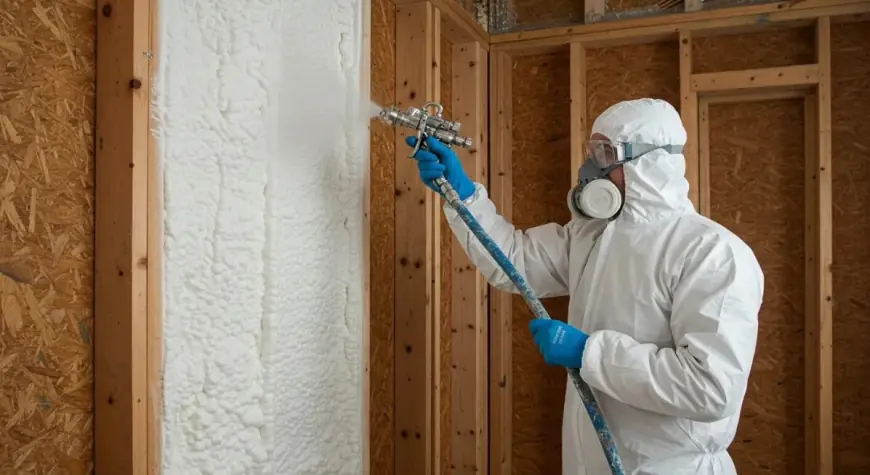
Signs a Property Needs Professional Foam Insulation
Not every building starts with ideal insulation. Many older homes and buildings in Lowell were constructed with outdated or insufficient materials. Knowing when to call a home insulation specialist can prevent ongoing energy losses and structural issues.
Drafts and Cold Spots Signal Poor Sealing
If rooms feel unevenly heated or suffer from draftiness, the issue likely stems from insufficient air sealing. Foam application specialists address these gaps by forming a continuous thermal barrier.
Rising Utility Bills Without Usage Changes
Inefficient insulation allows conditioned air to escape. When energy bills climb despite consistent usage, home energy specialists can test for insulation weaknesses and recommend targeted upgrades.
Visible Moisture or Mold Near Walls
Spray foam provides both thermal resistance and vapor control. Buildings that show signs of mold growth or persistent dampness may benefit from eco-friendly insulation that resists water intrusion and inhibits microbial growth.
Benefits of Hiring a Professional Spray Foam Contractor
Hiring an insulation contractor in Lowell, MA isn’t just about product application—it’s about building science, diagnostics, and precision. Here's what defines quality work and why experience matters.
Consistent Coverage and Proper Expansion
Certified insulation experts understand how spray foam behaves under real-world conditions—ensuring the material expands uniformly, fills gaps, and doesn’t separate over time.
Code Compliance and Energy Rebates
Local projects must meet Massachusetts building codes and energy efficiency targets. Local insulation experts help property owners qualify for incentives, tax credits, and utility rebates.
Fewer Problems During Resale
Documented upgrades by trusted foam contractors support appraisal reviews and give prospective buyers confidence. Spray foam work installed by reliable insulation firms tends to show fewer callbacks or warranty claims.
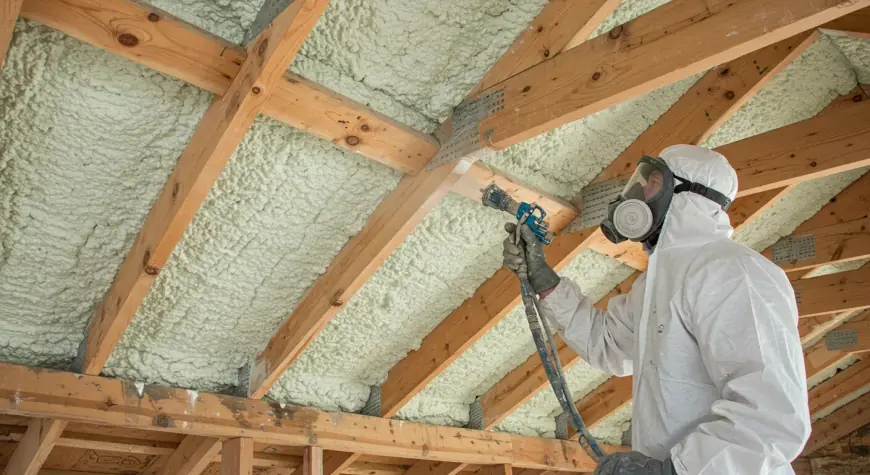
Spray Foam Insulation Types and Applications
Not all foam is the same. Knowing the difference between spray foam types helps property owners make informed decisions.
Closed-Cell vs. Open-Cell Foam
|
Feature |
Closed-Cell Foam |
Open-Cell Foam |
|---|---|---|
|
R-Value |
Higher (~6.5 per inch) |
Lower (~3.7 per inch) |
|
Water Resistance |
Acts as vapor barrier |
Not water-resistant |
|
Structural Strength |
Adds rigidity to framing |
Softer, flexible |
|
Best For |
Exterior walls, basements, commercial |
Interior walls, ceilings |
Foam insulation experts may recommend a hybrid approach depending on a building’s layout, moisture exposure, and usage type.
Residential vs. Commercial Applications
Residential insulation partners tend to focus on attics, rim joists, crawl spaces, and wall cavities. For commercial buildings, professional insulation teams apply foam to roofs, metal buildings, warehouses, and mechanical areas to reduce energy waste and improve thermal zoning.
Spray Foam vs. Traditional Insulation in Value Impact
Many property owners compare foam to fiberglass or cellulose. While initial cost favors traditional options, long-term ROI often leans toward energy-efficient spray foam.
Thermal Efficiency and Air Sealing
Traditional insulation allows for air movement, which reduces overall performance. Professional foam insulation creates an airtight seal, eliminating convective heat loss—a key factor in energy modeling and property performance assessments.
Durability and Longevity
Fiberglass tends to settle or degrade over time. In contrast, quality foam insulation maintains R-value and doesn’t shift. It also repels pests, resists mold, and doesn’t compress under framing.
How Spray Foam Contractors Add Value During Renovation or Sale
Hiring spray foam professionals in Lowell, MA during major updates adds documented efficiency improvements and increases appeal for future buyers or tenants.
Value During Home Appraisals
Appraisers can document energy efficiency features like spray foam in valuation reports. Especially when combined with new HVAC, windows, or solar systems, insulation upgrades become part of the improved envelope story.
Influence on HERS Ratings or Energy Labels
Local spray foam specialists help buildings qualify for third-party ratings like HERS, LEED, or Mass Save scoring. These are often used by lenders, realtors, and buyers to assess property performance.
Added Acoustic Control
Beyond thermal benefits, advanced insulation methods offer superior sound control—especially important in multi-family buildings, rentals, or commercial office settings.
Common Questions About Spray Foam for Lowell Properties
How long does spray foam insulation last? Properly installed foam insulation lasts 25–30 years or more without significant degradation. Its closed-cell structure resists settling, pests, and moisture.
Can spray foam help meet energy code in Massachusetts?
Yes. Spray foam is often used to meet or exceed energy code requirements for R-values, air infiltration limits, and thermal envelope performance in both new construction and retrofits.
Is spray foam safe for indoor air quality?
Once cured, spray foam is inert and doesn’t off-gas. Certified teams use ventilation systems during application and follow manufacturer safety guidelines to ensure indoor safety.
Will it reduce noise from outside or between rooms?
Yes. Open-cell spray foam is especially effective at sound dampening. It reduces airborne noise transfer between floors or from outside traffic.
Does spray foam work for older homes in Lowell?
Yes. Many homes in Lowell built before modern codes benefit from retrofitting with energy-efficient foam insulation in attics, crawlspaces, and rim joists—areas where heat loss is common.
Ready to Achieve Energy-Efficient Indoor Performance?
Quality insulation supports consistent indoor temperatures, reduces energy waste, and contributes to long-term property value. Lamothe Insulation and Contracting helps Lowell property owners meet performance goals with tested spray foam methods and expert application. For high-performance upgrades to homes or commercial spaces, contact: ? (508) 847-0119 ? [email protected]
Author
Robert Lamothe With over two decades of hands-on experience, Robert Lamothe, owner and lead installer of Lamothe Insulation, brings expertise in spray foam insulation, carpentry, and building science. Since 2002, he has earned a reputation for precision, craftsmanship, and delivering energy-efficient solutions that stand the test of time. Lamothe Insulation is a family-owned and family-operated business. Robert also owns the Goddard School of Auburn, an early childhood education school.
Reviewer
Ethan Taylor Ethan Taylor has 8 years of experience in spray foam insulation. He reviewed this content and suggested ways to simplify business outreach while keeping trust and professionalism intact.
What's Your Reaction?
 Like
0
Like
0
 Dislike
0
Dislike
0
 Love
0
Love
0
 Funny
0
Funny
0
 Angry
0
Angry
0
 Sad
0
Sad
0
 Wow
0
Wow
0







